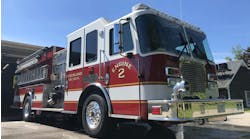Two more fronts have opened up in the ongoing battle between the collision repair and insurance industries over alleged steering practices. State legislatures in California and Connecticut are now considering bills that would further strengthen what their sponsors consider protections against illegal steering. In California, State Senator Pat Wiggins (D-Santa Rosa) introduced SB 1167, sponsored by the Collision Repair Association of California (CRA), which would require insurers to ask claimants if they have already selected a repairer. If they have selected a repairer, current state law prohibits insurers from recommending or suggesting alternative repair choices. The bill is scheduled for hearing on April 2. The bill also has the support of the California Autobody Association (CAA) and the New Car Dealers Association (NCDA). “We believe the current law is strong,” says Richard Steffen, deputy director for legislative affairs at the CRA. “But it’s not being enforced. This bill provides some clarification and adds a timing factor as to when the determination that a customer already has a shop in mind occurs. We’re also asking the insurance commissioner to please look at what’s going on out there. Take action now. Don’t wait for a bill to get passed.” The Connecticut bill (SB 288) was introduced by the state’s Attorney General Richard Blumenthal, and amends the current anti-steering law to say that “no insurance company … shall recommend, request or require any insured to use a specific person for the provision of automobile physical damage repairs, glass replacement, glass repair service or glass products.” The bill was heard before the General Assembly’s Joint Transportation Committee on Feb. 25. “The insurance companies skirt the language of the existing law,” says Tom Bivona, president of the Auto Body Association of Connecticut (ABAC) and owner of My Way Autobody in Greenwich. “They claim they ‘request’ instead of require, so this bill would prohibit exactly what’s happening in the marketplace.” ABAC has been working with Blumenthal’s office on steering legislation since last year. Insurance industry groups are opposing both bills. In California, the insurance industry has even characterized the proposed legislation as permitting repair shops to engage in their own brand of “steering,” as well violating insurance companies’ free speech rights. “This is a special interest bill for auto body shops that are afraid of informed consumer choice,” says Rex Frazier, President of the Personal Insurance Federation of California (PIFC). “Why are autobody shops afraid to let consumers know which shops provide a better guarantee of repair work? Consumers should be able to choose any body shop they want following a crash, but they also deserve to know whether or not a particular body shop will stand by their work.” The American Insurance Association and the Association of California Insurance Companies (ACIC) also oppose the bill. “The battleground is SB 1167 and the insurance industry is leading with its ‘head,’” says Allen Wood, CRA executive director. “By opposing the bill insurers are admitting they currently violate the law, which protects consumer choice by not allowing an insurer to suggest or recommend an alternative shop to claimants who have already selected a repairer.” The Connecticut bill, in addition to strengthening the language prohibiting steering, also requires appraisers to include specific language on an appraisal that reads, “Pursuant to Connecticut law, the insured has a right to choose the repair facility to perform repairs to a motor vehicle and an insurance company may not interfere with the insured’s choice of repairer.” Another bill under consideration in Connecticut, HB 5152, also requires this notification. The bill further specifies that the “recommend, request or require” prohibition includes acts that could influence a consumer’s decision, including reducing deductibles or premiums, and suggesting that delays or additional costs could result by not choosing a recommended facility. The Property Casualty Insurers Association of America (PCI) submitted written opposition to the Connecticut legislature, stating that the proposed law would prevent consumers from learning about their auto repair options, and potentially increase premiums. “Consumers should have the ability to make informed choices regarding the repair of their vehicles,” says Paul Magaril, regional manager and counsel for PCI. “However, this legislation prohibits insurers from answering basic questions that a consumer may have after suffering an accident. The bill expressly prohibits an insurer from even mentioning the benefits a consumer may receive through its direct repair program. The bill unnecessarily interferes with the free flow of information to consumers by preventing them from learning about the full range of their repair options.” “My question has always been, if you’re not steering, why are you objecting to the change in the language?” Bivona responds. “Why are they afraid of that language?” The Connecticut bill also includes a provision on labor rates, requiring that insurers pay rates that are “usual and customary” based on what the general public commonly pays for similar repairs in the same geographic area. “The type of price fixing permitted under this bill would benefit repair shops at the detriment of consumers,” Magaril said. “The bill unnecessarily interferes with the competitive free market by allowing costs to be set artificially.” On March 20, Connecticut’s Committee on Transportation gave SB 288 a favorable recommendation and added it to the Senate calendar. The legislative session in Connecticut ends in April. For more information, visit www.abaconn.com and www.cra-ca.com. |




